- Home >
- AOR Tapioca C - 300 V-Caps - Aor
Tapioca C - 300 V-Caps - Aor
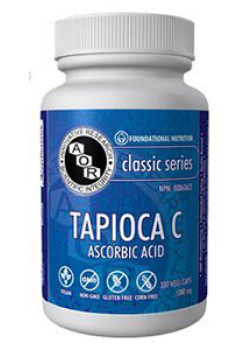
We're sorry, we no longer carry this item.
Check These out
Suggested, Similar, & Related Products:
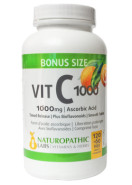
Sale: $14.99
Reg.: $19.99 (Save $5.00)
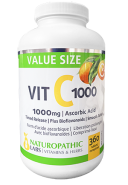
Sale: $27.99
Reg.: $41.99 (Save $14.00)
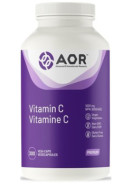
Sale: $40.15
Reg.: $50.11 (Save $9.96)
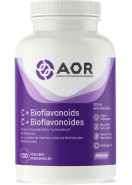
Sale: $27.16
Reg.: $33.90 (Save $6.74)
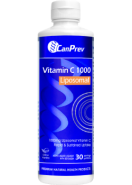
Sale: $39.99
Reg.: $44.99 (Save $5.00)
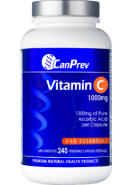
Sale: $30.99
Reg.: $34.99 (Save $4.00)
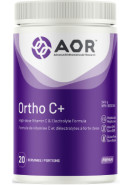
Sale: $32.89
Reg.: $41.05 (Save $8.16)
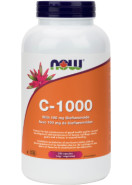
Sale: $29.99
Reg.: $34.99 (Save $5.00)
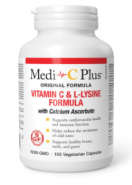
Sale: $23.87
Reg.: $26.37 (Save $2.50)
Or, Shop our Latest Deals:
Shop Now >- 1000MG
- Vitamin C (ascorbic acid from tapioca)
rice extract. Capsule: hypromellose.
Format
 Veggie Caps
Veggie Caps
300 Vcaps
Dosage
Take 1 capsule daily with food, or as directed by a qualified health care practitioner.
Important Information
Contains no wheat, gluten, corn, nuts, peanuts, sesame seeds, sulphites, mustard, soy, dairy, eggs, fish, shellfish or any animal byproduct
- Corn-free and non-GMO
- Supports healthy skin
- Improves collagen formation
- Helps regulate the immune system
Related Videos
No Related VideosRelated Articles
Articles by a naturopathic doctor.
AOR Canada is the innovative formulators of Canada’s best-selling antioxidant support, AOR Advanced B Complex and AOR Tri-B12. They are also known for their top bone health supplements, Ortho Adapt and Bone Basics. You can also SHOP AOR's Nattokinase, and trusted Curcumin Ultra, Curcumin Active and Curcumin95 inflammation support at National Nutrition.ca. AOR are leaders in natural health with innovative product development.
AOR TAPIOCA C ASCORBIC ACID
Tapioca C is pharmaceutical-grade ascorbic acid (vitamin C) derived from glucose extracted from tapioca, rather than the common commercial sources such as corn. Vitamin C is a factor in the normal development and maintenance of bones, cartilage, teeth and gums, and is an antioxidant for the maintenance of good health.
Vitamin C is most well-known for its role as an immune system regulator, with many people using it to prevent colds and flu. However, this is only a small part of what this versatile nutrient can do. As an antioxidant, vitamin C prevents the oxidation of LDL cholesterol, a catalyst in heart disease progression. Studies show that higher intakes of vitamin C are associated with a reduced risk of a number of cardiovascular diseases.
Vitamin C is also a cofactor for a number of reactions that occur in the body. It is required for collagen formation, which is necessary for wound healing and maintaining the structure of skin and gums. It is involved in the synthesis of important hormones and neurotransmitters, supports the function of the adrenal glands and increases the absorption of non-heme iron. Protecting cells and DNA from oxidative damage is critical for anti-aging and reducing the risk of many degenerative diseases, and is one of vitamin C's most important roles.
Vitamin C is a foundational nutrient, meaning it supports a healthy foundation and overall well-being for everyone. Many vitamin C products are sourced from corn, which many people are allergic to, or are sourced from pure glucose for which the original source is unknown. Tapioca C is a high dose vitamin C product that is sourced from tapioca, and is an ideal alternative for individuals who prefer vitamin C from a hypoallergenic and whole food source.
A Hypoallergenic Source of Vitamin C
-Corn-free and non-GMO
-Supports healthy skin, nails and hair by improving collagen formation
-Helps regulate the immune system and maintain healthy blood vessels
-Back by popular demand and in a larger capsule count
Main Applications:
-Antioxidant
-Collagen
-Skin
-Cardiovascular health
-Immunity
-Infections
-Inflammation
Vitamin C
Vitamin C is known for its ability to enhance immune function, but its real strength lies in tissue supporting the growth and repair of tissues all over the body...
The Basics
Vitamin C is a water-soluble vitamin that is not stored within the body. Humans cannot manufacture their own vitamin C, either, meaning it must be taken in through diet and supplementation. Vitamin C is the most widely used supplement. It is recommended that vitamin C be taken in divided doses throughout the day, as excess is lost in urine within a few hours of ingestion. Vitamin C can be found in an abundant number of fruits and vegetables.
Citrus fruits, cantaloupe, berries, mango, papaya, pineapple, leafy greens, broccoli, brussel sprouts, cauliflower, sweet potatoes, red and green peppers, tomato/tomato juice and squash are all rich in vitamin C. Vitamin C is sensitive to heat, so it is recommended to eat these foods raw or only lightly cooked.
Deficiency
Severe vitamin C deficiency is rare, but low vitamin C levels are more and more common. Signs and symptoms include poor wound healing, easy bruising, nose bleeds, rough/dry/scaly skin, and dry, splitting hair, gingivitis and decreased immunity. These symptoms can get quite severe, with extreme deficiency known as scurvy. Cigarette smoking can seriously lower vitamin C levels. These individuals must compensate through diet or supplementation. Stress, physical and mental/emotional, can also deplete vitamin C levels, as can some medications, including Non Steroidal Anti Inflammatories (NSAID's).
Types
There are several types of vitamin C. Ascorbic acid is the basic form. To buffer the natural acidity of vitamin C manufacturers bind it to other molecules. Two examples are calcium ascorbate (Ester-C) and ascorbyl palmitate. It also makes vitamin C easier for the body to absorb and decreases the loss of the vitamin through the urine. This increases the cost of the supplement but it is beneficial to those taking high doses of vitamin C, those who cannot tolerate acidic substances, and those with compromised absorption or digestive processes. Vitamin C comes in a variety of dosage forms including conventional capsules, time-released caps/tablets, syrups, powders and chewable tablets. A qualified practitioner can administer it intravenously. Vitamin C is usually derived from corn or dextrose but tapioca-sourced C is also available. Vitamin C is often combined with bioflavonoids, like hesperidin and rutin. These substances work synergistically with Vitamin C. Rose hips are a good substitute for straight vitamin C because they are the richest natural source of vitamin C. Rose hips are also a good source of bioflavonoid.
- Reviews
- POST A NEW REVIEW
Tell everyone what you think about this item!















